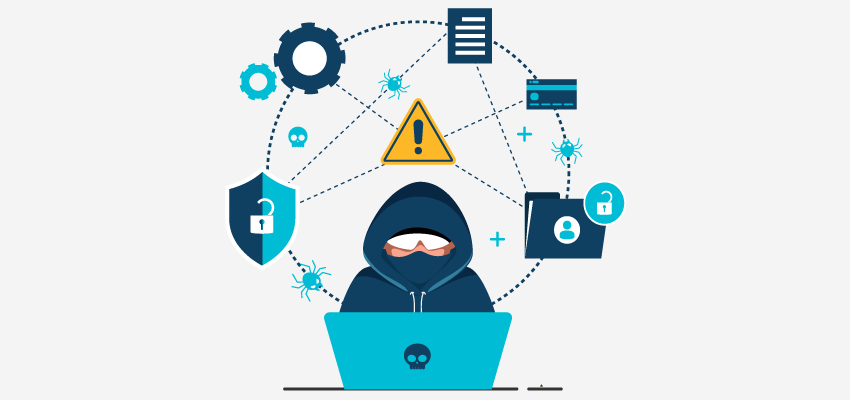What is shared intelligence? How can it improve consumer trust?

Fraud prevention isn’t just about ticking off the regulatory boxes, ID fraud prevention is the most important factor for businesses today. According to a report, over 70% businesses consider identity and fraud prevention as a part of their unified business strategy.
The combined cost of ID and fraud due diligence is lower than the average cost of fraud. This means tackling fraud before it happens can not only save money but also improve customer’s trust in a business.
Importance of Building Trust in the Age of Global Commerce
It is crucial for businesses to build trust in this age of digital commerce and remote customer relationships.
The best way businesses can fight fraud is by sharing consumer intelligence. Shared intelligence is a powerful tool that creates a safer environment and improves the online experience for both businesses and consumers.
Identity Data Networks
Shared data networks are just the tool that businesses globally need to shine a light on fraud that goes unnoticed. Data networks have the potential to act as a digital referral system, which can highlight the reputation of digital identities and identity attributes.
Shared Consumer Intelligence
Shared consumer intelligence combines millions of consumer identity data that’s collected by businesses globally. These identity attributes are derived from applications and transcriptions taking place across the network.
Shared consumer intelligence includes data broken down into multiple categories:
- Person – forename, surname, and date of birth
- Address – house number/apt number, street name, town, postcode, and country
- Device – mobile or telephone number, email, and IP address
- Document – national ID documents, passport, or driving license number
- Bank – account number & other account information
The Role of Shared Intelligence in Building Trust
1. Enhanced Transparency and Accountability
Shared intelligence allows businesses to be more transparent with their customers. By openly sharing information about product origins, manufacturing processes, and supply chain practices, companies can demonstrate their commitment to ethical practices. For instance, a company that provides detailed information about the sustainability of its products can build trust with environmentally conscious consumers.
Furthermore, when businesses share their data and insights with third-party auditors or certification bodies, they add an extra layer of accountability. This external validation can reassure consumers that the company’s claims are genuine and not just marketing rhetoric.
2. Improved Product and Service Quality
When businesses collaborate and share intelligence, they can identify and address issues more effectively. For example, companies in the same industry can share information about common defects or customer complaints. This collective knowledge can lead to faster problem-solving and continuous improvement in product and service quality.
Additionally, shared intelligence enables businesses to stay ahead of emerging trends and customer preferences. By analyzing data from various sources, companies can better understand what their customers want and adapt their offerings accordingly. This proactive approach not only enhances customer satisfaction but also builds trust, as consumers feel that their needs and preferences are being prioritized.
3. Enhanced Security and Privacy Measures
In an era where data breaches and cyber threats are prevalent, consumer trust hinges significantly on how well a company protects its customers’ data. Shared intelligence plays a crucial role in enhancing security measures. By collaborating with other organizations, industry groups, and cybersecurity experts, businesses can stay informed about the latest threats and best practices.
For instance, shared intelligence can help companies identify and mitigate new types of cyber-attacks quickly. This collaborative approach to cybersecurity not only protects consumers but also demonstrates a company’s commitment to safeguarding their personal information, thereby fostering trust.
4. Strengthened Customer Relationships
Shared intelligence can also lead to more personalized and meaningful customer interactions. By leveraging data from various touchpoints, businesses can gain a comprehensive understanding of their customers’ preferences, behaviors, and pain points. This knowledge enables companies to tailor their communication, marketing strategies, and customer service efforts to meet individual needs more effectively.
When customers feel understood and valued, their trust in the brand deepens. They are more likely to remain loyal and advocate for the brand, further enhancing the company’s reputation and credibility.
5. Building Collaborative Ecosystems
Shared intelligence fosters collaboration not only within a company but also across entire ecosystems. When businesses, suppliers, and other stakeholders share insights and data, they can create more resilient and efficient supply chains. For instance, real-time data sharing can help companies anticipate and address disruptions, ensuring that products are delivered on time and meet quality standards.
Such collaborative ecosystems can also drive innovation. By pooling resources and expertise, businesses can develop new solutions and technologies that benefit consumers. This collective effort towards innovation demonstrates a company’s commitment to continuous improvement and customer satisfaction, reinforcing consumer trust.
Conclusion
In conclusion, shared intelligence is a powerful tool for building and maintaining consumer trust. By enhancing transparency, improving product quality, strengthening security measures, personalizing customer interactions, and fostering collaborative ecosystems, businesses can demonstrate their commitment to their customers’ needs and values.
In an age where trust is a valuable commodity, leveraging shared intelligence can set companies apart and build lasting, loyal relationships with their consumers.












